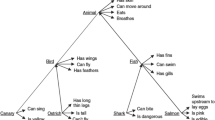Conclusion
We have provided a theoretical and methodological justification of complete construction of a universal formalized language of knowledge. We have proved the following:
-
the base term classification ensures unambiguous and deep indexation of documents;
-
the fixed sentence syntax makes it possible to standardize information-retrieval languages and automatic translation between languages;
-
the fixed message semantics provides the following opportunities: measuring the semantic information; rating the intensification of intellectual effort; eliminating unjustified duplication of research and publication; providing the user with timely necessary information in a form suitable for direct processing and use; organizing a national cost-efficient communication technology; solving linguistic problems of artificial intelligence and informatization of society; creating a reliable structural foundation for the development of a common unambiguous language for the entire humanity.
Similar content being viewed by others
References
G. M. Dobrov, Forecasting in Science and Engineering [in Russian], Nauka, Moscow (1977).
A. Tikhonov, “An outgrowth of practice. Thoughts of a scientist,” Pravda (Oct. 20, 1986).
C. Danilovicz and A. Weiman, “Sovinska (Poland). Polish Scientific Conference,” NTI, Ser. 1, No. 8, 29-31 (1990).
G. M. Dobrov, “Onward into the future, without intermissions,” NTR: Problemy i Resheniya, No. 21 (1986).
E. G. Azgal'dov “Information is a valuable thing,” International Forum on Information and Documentation, 4, No. 1, 49 (1975).
N. P. Vashchekin, Scientific-Information Activity [in Russian], Mysl', Moscow (1984).
V. S. Tyukhtin, “Topical questions in the development of general system the Dry,” in: System, Symmetry, Harmony [in Russian], Mysl', Moscow (1988), pp. 10–37.
K. Snajder, Das Weltbild der modernen Naturwissenschaft, Leipzig (1905).
E. G. Sukhmaneva, “On flexibility of classification,” NTI, Ser. 2, No. 6, 3–7 (1974).
Classification of Main Information Publications in the USSR [in Russian] VINITI, Moscow (1974).
K. I. Ruder'son, Modern Document Classifications [in Russian], Nauka, Moscow (1973).
Library-Bibliographic Classification. Abbreviated Version [in Russian], Vol. 1, Kniga, Moscow (1972).
J. Perrault, The Theory of UDC [Russian translation], VINITI, Moscow (1972).
G. I. Kalinina, “Construction principles of special facet classifications,” Nauchnye i Tekhnicheskie Biblioteki SSSR, No. 4, 28–35 (1971).
M. Taube, Computers and Common Sense. The Myth of Thinking Machines [Russian translation], Progress, Moscow (1964), pp. 37–43.
S. S. Lavrov, “On knowledge and the language of man and machine,” Semiotika i Informatika, No. 24, 5–15 (1985).
G. S. Pospelov, “A new approach to the use of computers” in: Cybernetics: Unlimited Possibilities and Possible Limitations. Future Prospects [in Russian], Nauka, Moscow (1981), pp. 76–82.
K. A. Sergeev and A. I. Sokolov, Logical Analysis of Forms of Scientific Search [in Russian], Nauka, Leningrad (1986).
Additional information
Deceased.
Translated from Kibernetika i Sistemnyi Analiz, No. 4, pp. 154–162, July–August, 1997.
Rights and permissions
About this article
Cite this article
Garbuz, A.S. Proposal for a universal formalized language of knowledge. Cybern Syst Anal 33, 581–588 (1997). https://doi.org/10.1007/BF02733115
Received:
Issue Date:
DOI: https://doi.org/10.1007/BF02733115




